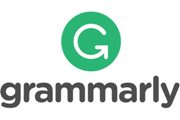PENGARUH MODEL PROBLEM BASED LEARNING TERHADAP KEMAPUAN BERPIKIR KRITIS SISWA PADA MATA PELAJARAN IPAS
Keywords:
Problem Based Learning, Kemampuan Berpikir Kritis, Ilmu Pengetahuan Alam dan SosialAbstract
This research is motivated by the low critical thinking ability of students in Natural and Social Sciences (IPAS) subjects. This is evident from the lack of students' ability to provide simple explanations, build basic skills, conclude and provide further explanations. The purpose of this study is to determine whether or not there is an influence of the Problem Based Learning (PBL) model on students' critical thinking abilities. The research method used is a quantitative research method with an experimental research type and a one-group pretest-posttest design. The sampling technique in this study is saturated sampling, namely all 15 fifth grade students. Data collection techniques include observation and tests. Data analysis techniques used are normality tests, t-tests, and N-Gain tests with the help of SPSS. The results of the data normality test show that both data are normally distributed. The t-test results show a sig. value of 0.00 which is smaller than 0.05, so Hα is accepted. This means that there is a significant influence of the use of the PBL model on students' critical thinking abilities. Meanwhile, the N-Gain test results obtained a score of 0.76, which is included in the high category, and the N-Gain percentage results obtained a value of 76.68%, which means that this PBL model is included in the effective criteria. In conclusion, there is a significant influence of the use of the PBL model on students' critical thinking skills in the science subject of grade V of SDN Cikeusi II.
References
Ayunda, S. N., Lufri, L., dan Alberida, H. (2023). Pengaruh Model Pembelajaran Problem Based Learning (PBL) Berbantuan LKPD terhadap Kemampuan Berpikir Kritis Peserta Didik. Journal on Education. Vol. 5, (2), 5000–5015.
Fauzi, N. B. B. (2023). Problem Based Learning Upaya Meningkatkan Kemampuan Berpikir Kritis dan Prsetasi Peserta Didik di Abad 21. Jawa Tengah: Diva Pustaka.
Haerullah,A. (2017). Model dan Pendekatan Pembelajaran Inovatif (Teori dan Aplikasi). Yogyakarta: Lintas Nalar.
Hamidah, S., dkk. (2023). Analisis Berpikir Kritis dalam Buku Ajar Pendidikan Agama Islam Kelas XI. PIWULANG: Jurnal Pendidikan Agama Islam. Vol. 5, (2), 203–221.
Hasanah, N., Rajagukguk, P. K., dan Shafa, I. (2020). Pengaruh Model Problem Based Learning terhadap Kemampuan Berpikir Kritis Siswa Sekolah Dasar. Jurnal Sintaksis: Pendidikan Guru Sekolah Dasar, IPA, IPS dan Bahasa Inggris. Vol. 3, (1), 24-30.
Ikhwan, W. K. (2015). Implementasi Standar Isi, Standar Proses, Standar Lulusan Sebagai Standar Mutu pendidikan MTs Negeri di kabupaten Tulungagung. Pedagogia : Jurnal Pendidikan. Vol. 4, (1), 16–22.
Indriani, A., dkk. (2024). Analisis Kemampuan Berpikir Kritis dalam Implementasi Kurikulum Merdeka di SD Negeri Golo. Jurnal Ilmiah Profesi Guru (JIPG). Vol. 5, (1), 24–31.
Irawati, I. (2020). Application of The Problem Based Learning (PBL) Learning Model Improves Students’ Cooperation Attitude. Workshop Nasional Penguatan Kompetensi Guru Sekolah Dasar SHEs: Conference Series. Vol. 3, (3), 2209–2215.
Jannah, A. R., Rahmawati, I., dan Reffiane, F. (2020). Pengaruh Model Problem Based Learning (PBL) Berbantuan Media Gambar terhadap Hasil Belajar IPAS Siswa Kelas V Gugus III Kuta Utara Tahun Pelajaran 2017/2018. Jurnal: Pendidikan PGSD. Vol. 8, (3), 342-350.
Kemendikbud. (2022). Ilmu Pengetahuan Alam dan Sosial (IPAS) SD-SMA Merdeka Mengajar. Jakarta: Kementerian Pendidikan, Kebudayaan, Riset, dan Teknologi Republik Indonesia.
Kementerian Pendidikan dan Kebudayaan, (2018). Buku Pegangan Pembelajaran Berorientasi pada Keterampilan Berpikir Tingkat Tinggi (HOTS). Jakarta: Direktorat Jenderal Guru dan Tenaga Kependidikan Kementerian Pendidikan dan Kebudayaan.
Kementerian Pendidikan dan Kebudayaan, (2019). Model Penilaian Formatif pada Pembelajaran Abad ke-21 untuk Sekolah Dasar. Jakarta: Pusat Penilaian Pendidikan, Badan Penelitian dan Pengembangan, Kementerian Pendidikan dan Kebudayaan.
Kurniawan, H. A., Pambudi, D. I., dan Mujirah, F. (2022). Peningkatan Motivasi Belajar Siswa Menggunakan Model Problem Based Learning (PBL) pada Kelas IV SD Negeri Karangjati. Jurnal Pendidikan dan Konseling. Vol. 4, (4), 2545–2549.
Monash University, (2022). What is critical thinking? Student Academic Success. [online] Tersedia di: https://www.monash.edu/student-academic success/enhance-your-thinking/critical-thinking/what-is-critical-thinking [Diakses 26 Apr. 2025].
Nuchus, C., dan Gunansyah, G. (2016). Pengaruh Model Problem Based Learning terhadap Kemampuan Berpikir Kritis Siswa pada Pembelajaran IPS di Sekolah Dasar. Jurnal Pendidikan Guru Sekolah Dasar. Vol. 4, (2), 65-74.
Sa’diah, Y. N., Afiani, K. D. A., dan Setiawan, F. (2023). Analisis Kemampuan Berpikir Kritis Siswa Sekolah Dasar pada Pembelajaran Matematika dengan Model Problem Based. Jurnal Ibriez : Jurnal Kependidikan Dasar Islam Berbasis Sains. Vol. 8, (1), 47–60.
Suendarti, M. (2021). Pengaruh Kemampuan Berpikir Kritis dan Komunikasi Ilmiah terhadap Penguasaan Konsep Pencemaran Lingkungan. Malang: Literasi Nusantara
Sugiyono. (2019). Metode Penelitian Kuantitatif, Kualitatif dan R&D. Bandung: Alfabeta.
Sugiyono. (2020). Metode Penelitian Kuantitatif, Kualitatif, dan Kombinasi (Mixed Methods). Bandung: Alfabeta.
Suhelayanti, Z, S., dkk. (2023). Pembelajaran Ilmu Pengetahuan Alam Sosial (IPAS). Medan: Yayasan Kita Menulis.
Waruwu, L., dkk. (2024). Analisis Mendalam terhadap Perubahan Keterampilan Berpikir Kritis Siswa melalui Kurikulum Merdeka. Journal of Education Research. Vol. 5, (3), 3783–3789.
Wuryandani, W., Maftuh, B., dan Budimansyah, D. (2019). Pendidikan Karakter Disiplin di Sekolah Dasar. Cakrawala Pendidikan. Vol. 2, (2), 286–295.
Yampap, U., dan Bay, R. (2020). Penerapan Pendekatan Keterampilan Proses untuk Meningkatkan Keterampilan Berpikir Kritis Siswa Sekolah Dasar. Journal: Musamus Journal of Primary Education. Vol. 3, (1), 57-64.
Zakiah, L., dan Lestari, I. (2019). Berpikir Kritis dalam Konteks Pembelajaran. Bogor: Erzatama Karya Abadi.
Downloads
Published
How to Cite
Issue
Section
License
Copyright (c) 2025 Sebelas April Elementary Education

This work is licensed under a Creative Commons Attribution-NonCommercial-ShareAlike 4.0 International License.







